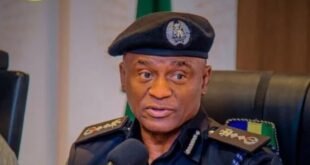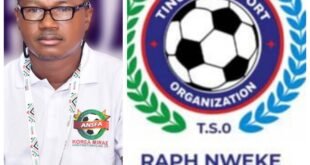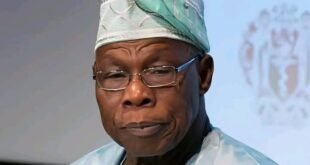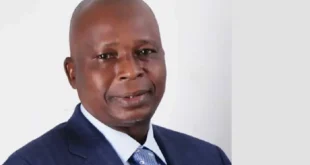Nigeria is once again grappling with civil unrest as calls for nationwide protests under the banner #EndBadGovernance gain momentum.
The demonstrations, fueled by widespread dissatisfaction with economic and governance conditions, have raised fears of a potential repeat of violent clashes as witnessed during the 2020 #EndSARS protests.
Background
The #EndBadGovernance movement emerged amid rising economic pressures, rampant corruption, and the Nigerian government’s failure to address these issues effectively. Organizers called for mass demonstrations to push for systemic reforms, emphasizing the need for a more accountable and responsive government.
The hashtags #DayofRage and #Tinubumustgo have been used to amplify the protests, especially on social media. The latter hashtag targets President Bola Tinubu’s government, accusing it of ignoring the urgent needs of Nigerians.
In a statement, protest organizers said, “We stand against a government that ignores our calls for justice and development. #Tinubumustgo is a call for accountability and real change.”
Controversy and Concerns
The rhetoric surrounding #DayofRage has raised concerns about potential violence. This particular hashtag indicates a high level of frustration and readiness for more aggressive forms of protest, reminiscent of the intensity seen during the #EndSARS demonstrations.
The #EndSARS protests in October 2020 began as a movement against police brutality but evolved into a broader critique of systemic corruption and governance failures in Nigeria. The protests were marked by clashes between demonstrators and security forces, most notably the tragic events at the Lekki Toll Gate. This led to a significant crackdown, resulting in many deaths and injuries.
Government and Public Reaction
In response to the escalating unrest, Nigerian government officials have urged restraint and dialogue. President Tinubu has appealed for calm, saying, “While we recognize the right of citizens to air their grievances, we must avoid actions that could lead to violence and disrupt our national stability.”
He added, “Our government is committed to addressing the issues raised by the protesters through constructive engagement and reform.”
Information Minister Mohammed Idris stressed the need for peaceful protests, saying, “We understand the frustration of the people, but we must channel this frustration into meaningful dialogue rather than destructive actions. Violence will not solve our problems.”
Prominent Nigerians also weighed in. Former President Olusegun Obasanjo urged peaceful protests and dialogue, saying, “Nigeria has faced great challenges in the past, and the way forward is through unity and constructive engagement, not through confrontation.”
On the other hand, civil society leaders have expressed concerns about the potential for another outbreak of violence. Aisha Yesufu, a prominent activist who was vocal during the #EndSARS protests, said, “The anger of the people is real, but we must be careful that it does not lead to chaos. Our struggle for better governance must remain peaceful and purposeful.”
READ ALSO:Court restricts #EndBadGovernance protesters from Freedom and Peace Park
Organizer’s Demand
Despite calls for calm, organizers of the #EndBadGovernance protests remain steadfast. They argue that previous peaceful demonstrations have not yielded the desired results and that more radical action is needed to force the government to act. One of the main organizers asserted, “The government has ignored our peaceful protests in the past. If they don’t take us seriously, we have no choice but to escalate our methods.”
Potential Points of Violence
The potential for violence during the #EndBadGovernance protests is a major concern, especially in cities with a history of unrest or where tensions are particularly high.
Lagos City:
Lagos, Nigeria’s commercial hub, is a major flashpoint. During the #EndSARS protests, Lagos was the epicentre of violence, particularly at the Lekki Toll Gate, where security forces were accused of opening fire on unarmed protesters.
The volatile atmosphere in the city has been further fueled by recent threats from some groups who have vowed to prevent the protests, saying, “We do not want any disturbance in Lagos. Anyone who joins the protest will face serious consequences.”
This has created an environment ripe for confrontation between protesters and those opposing the demonstrations.
Abuja City:
The capital, Abuja, could also be a significant flashpoint. As the seat of the federal government, it has become a major site for political protests.
Previous demonstrations in Abuja have seen intense confrontations with security forces, and the #EndBadGovernance protests are expected to follow. The deployment of security forces at strategic locations and increased surveillance are likely to cause tensions.
Port Harcourt:
In Port Harcourt, the industrial hub of the Niger Delta, complaints about environmental degradation and corruption in the oil sector have fueled local discontent.
The city’s history of militant activism makes it another potential flashpoint. Activists have expressed concerns about a heavy-handed response from authorities, which could escalate into violence.
Kano Language:
Kano, a major city in northern Nigeria, has its own set of challenges, including economic hardship and political tensions. The prospect of violent clashes here is high if protests are seen as being motivated by interests that conflict with local concerns or cultural norms.
Benin City:
Benin City, the capital of Edo State, is another area with potential for tensions. The state has experienced political violence in the past, and the potential for unrest remains high if protests spark local clashes, or if the response from authorities is seen as oppressive.
Court restricts movement of protesters
But the court has offered leniency that is seen as allaying fears that the protests could turn violent. Justice Emmanuel Ogundare of the Lagos State High Court, Ikeja, on Tuesday confined #EndBadGovernance protesters to Gani Fawehinmi Freedom Park in Ojota, and to Peace Park in Ketu area of the state.
Opponents of the protest and security agencies hope that if organisers comply with the court order, it will help contain any escalation or infiltration of the protesters, who initially said they would march from NAHCO to Murtala Mohammed airport, a major route in the state that would affect other areas, including the popular Oshodi area.
Meanwhile, Nigerians are holding their breath to see what the outcome of the protests will be.
As Nigeria faces a crossroads, the direction of the #EndBadGovernance protests will depend on whether demonstrators can channel their frustrations constructively or whether they will resort to the aggressive tactics of previous movements. The balance between peaceful advocacy and potential violent confrontation will be crucial in determining the future of Nigeria’s quest for better governance and societal reform.
#EndBadGovernance Protests: Is another violent outburst imminent in Nigeria? first appeared on Latest Nigeria News | Headlines from Ripples Nigeria.
 JamzNG Latest News, Gist, Entertainment in Nigeria
JamzNG Latest News, Gist, Entertainment in Nigeria









